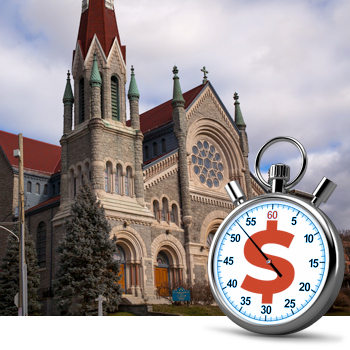
Many states are now moving to help survivors of childhood sexual abuse seek justice for the suffering they endured. New legislation, such as the New York Child Victims Act, allows survivors to file suit against their abusers and the institutions that enabled them, even when statute of limitations laws had previously barred them from doing so. This has empowered thousands of survivors to come forward with their stories, even decades after the abuse occurred.
However, as countless new sexual abuse lawsuits are being filed, Catholic dioceses have been searching for ways to consolidate and re-classify their assets to protect themselves from lawsuits and payouts to survivors. In addition, many Catholic dioceses have filed for Chapter 11 bankruptcy in order to settle the many abuse claims against them without liquidating (or selling) their assets. Chapter 11 bankruptcy allows a diocese to re-structure its debts by negotiating and altering their terms while resolving all litigation against it in one fell swoop.
Currently, more than 20 Catholic dioceses and religious orders in the US have declared bankruptcy.
What Does Bankruptcy Court Mean for Survivors?
Once a diocese files for bankruptcy, all pending cases against the diocese are transferred to bankruptcy court. For survivors who have already filed suit, their cases will no longer proceed through standard procedures, such as a jury trial.
Instead, the bankruptcy judge will evaluate a diocese’s finances to determine which funds may be used to compensate survivors, and how much the church can retain to continue operations. The court makes their decision based on the organization’s market value, including all revenues from parishioners, insurance, proceeds from interest, and any endowment funds they may have.
Should Survivors Still File Suit?
Yes. While the ceiling for compensation may be somewhat lowered by bankruptcy court, there are still some major advantages to filing a claim. It is typically a more streamlined process, meaning that survivors should have an easier time proving their cases than in standard court proceedings. Survivors are also not typically subjected to court hearings that can be emotionally painful and exhausting.
Another advantage to bankruptcy court is the increased anonymity for survivors. For many, coming forward with stories of abuse is one of the most difficult parts of their journey. This can be especially hard if survivors are nervous about appearing in public. Most bankruptcy courts allow survivors to remain completely anonymous throughout the settlement process. Survivors are also not typically required to participate in a deposition, the process of legal questioning, which can be an intimidating experience for many.
It is important to know that the opportunity for survivors to seek justice ends once the bankruptcy case has been closed. Chapter 11 is meant to settle all outstanding liabilities and debts so, if a survivor does not come forward during the settlement period, they could forever lose their right to seek compensation in the future.
Is a Lawyer Still Required?
It is strongly advised that survivors consult with an attorney before entering into a bankruptcy case. Because of the streamlined process, and the lack of jury trials, it is important to make a strong case to maximize compensation payout. Meeting with an attorney will allow survivors to present the best possible case and can help ensure that they are properly compensated for the abuse that they suffered.
If you or a loved one was sexually abused by a Catholic clergy member, nun, teacher, or other employee of a church-run institution, contact our dedicated team for a free consultation.
RELATED POSTS
Pittsburgh Diocese Refuses to Help Child Sexual Assault Victim Identify John Doe Priests in Lawsuit
Jesuits, Bishops Sued for Hiding Child Molester in PA Parish
Bishops: In public, humility. In private, arrogance.
New Lawsuit Alleges Two Archdiocese of New York Priests, Not Previously Identified as Credibly Accused Abusers, Sexually Abused Two Children—One in the Late 1960s and One in the Early 1970s
Sexual Abuse of a Minor; Lawsuit Filed Against the Roman Catholic Diocese of Allentown, PA
Sexual Abuse Lawsuit Filed Against Methodist Church, Children’s Home Under North Carolina’s New Safe Child Act
Sexual Abuse Lawsuit Filed Against the Roman Catholic Diocese of Greensburg, PA in the District of Columbia
